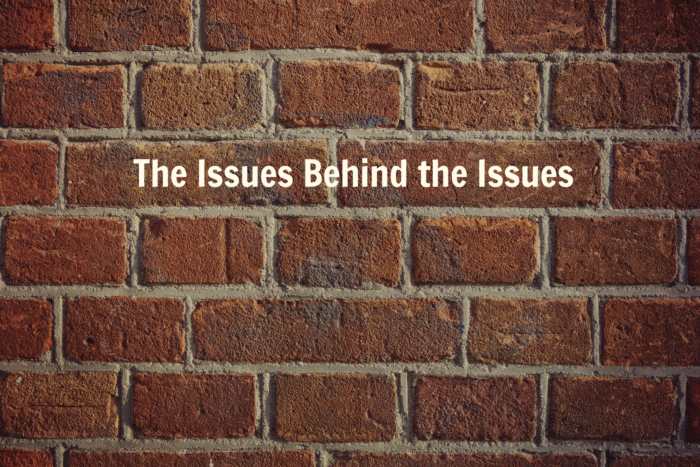Ants and Donuts
A few weeks ago I came downstairs to find ants. Normal-sized ones and teeny-tiny ones* were making themselves right at home on my kitchen counter. I had been fighting a battle with them since it got cooler. I thought we had beat them, although I would still find an occasional one making its lone way across the countertop. Until that morning.
I grabbed some thick sheets of wet paper towel and just started wiping it across the counter, gathering all I could see in my broad swipes, muttering to myself all the while. I. Hate. Ants. Especially in my house.
Nearby sat a container of apple cider donuts leftover from a gathering the night before. I carefully lifted them up in the dim light, twisting and turning the clear container all around. I didn’t have my glasses on but from what I could tell, they looked okay. I breathed a sigh of relief and moved them to the kitchen island where, at least so far, no ants had been spotted.
A little while later, my husband mentioned that the donuts had ants all through them. Rather shocked, I put on my glasses and sure enough! They were all over those donuts. What looked like hundreds of them crawling over, under, and through the holes in the middle.
How could I have not seen them?
I threw the donuts away and went on with my day.
But I’ve been thinking a lot about this incident. There are a few lessons to be learned.
The first lesson that came to mind is that worry and anxiety are like those ants. They crawl in and around and through everything good in our lives and destroy it. While worry and anxiety do nothing to help change the future, they do destroy the present. I think this is why Jesus tells us in Matthew 6:34–
Therefore do not worry about tomorrow, for tomorrow will worry about its own things. Sufficient for the day is its own trouble.
The fact that Jesus mentions this would tell us that worry has always been around. What is the antidote for worry? How do we get to “Do Not Worry”? I am actually still working on that. However, I think there are two things that can really help.
First, and most importantly, we need to fill our minds with God’s Word. His Word fills us with comfort and peace and gives us an eternal perspective. We should memorize a few verses about who God is. And Matthew 6:34 (or even back up a few verses and catch the rest of what Jesus has to say about worry). Saturating our minds with God’s Word will serve us well when the anxieties loom over us and steal our joy.
Second, we need to turn our attention from inward to outward. It is hard to see the needs of others when we are focused on ourselves. We render ourselves fairly ineffective for God’s Kingdom when we are overtaken and haunted by worry and anxiety about the future. But when we can think outside ourselves and serve others, we will find that the thoughts of anxiety and worry will melt away as other thoughts fill our minds.
I believe that our battle with worry and anxiety is a sin because it shows that we are not trusting God or submitting to His will for our lives. I also believe that this sin is one that almost all of us fight at one time or another. The first key is to recognize it as a sin (and not just blame it on our personality or circumstances) and then we need to actively work to eradicate that sin from our lives.
The second lesson from those ants is this: We need our glasses on in order to see the ants. The Bible functions as our glasses. It gives us understanding and shows us who God is, who we are, what sin is, how we can be saved, and how we can grow in Christ. Everything we need for life and godliness is within its pages.
But, too often, we try to navigate life without it. And so we have ants on our donuts but we don’t even realize it! We think all is fine when it’s not fine at all. The Bible not only helps us get rid of the ants, it shows us that the ants exist.
You may think you’d just rather know the ants don’t exist. And I feel that way, too, sometimes. But God’s way is always perfect and finding those ants (and sins!) sooner rather than later is always going to be best for us!
So we need to put on our Bible glasses in order to see ourselves as we really are (instead of our “friend” glasses that have us comparing ourselves to those around us).
And then we need to do something about it. Remember what James says–
But be doers of the word, and not hearers only, deceiving yourselves. 23 For if anyone is a hearer of the word and not a doer, he is like a man observing his natural face in a mirror; 24 for he observes himself, goes away, and immediately forgets what kind of man he was. 25 But he who looks into the perfect law of liberty and continues in it, and is not a forgetful hearer but a doer of the work, this one will be blessed in what he does. James 1:22-25
I don’t like ants, but they did give me something to write about this morning, so as it’s the first day of November I can say, in the spirit of Thanksgiving, there’s even a reason to be thankful for ants on my counter! Have a great day!
*The exterminator told me the really tiny ants were baby ants! Who knew??










